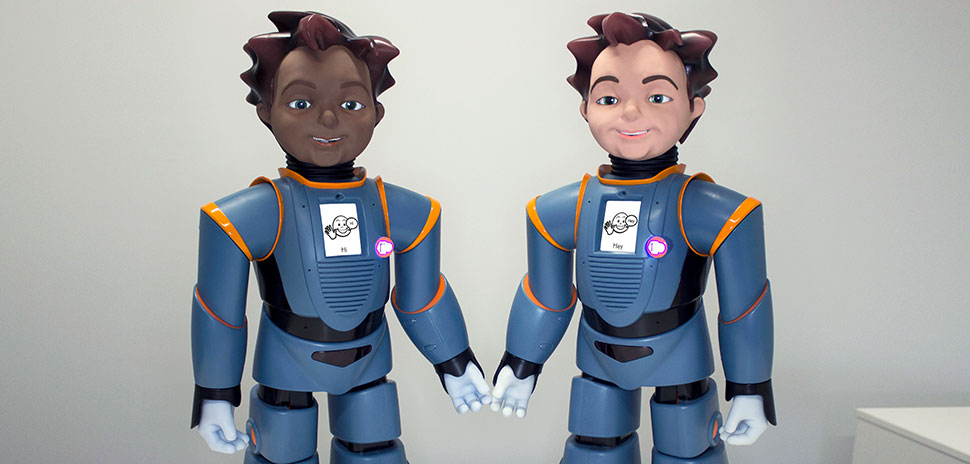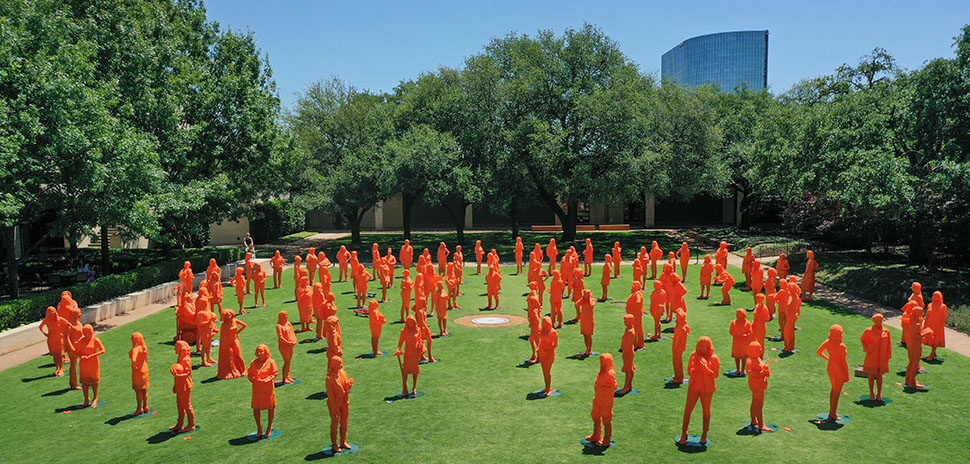Dallas-based RoboKind has designed a new humanoid robot, named Jett, with African-American likeness to help bridge the diversity gap in K-12 STEM education and the projected STEM employment deficit.
“Our mission is to enable students, no matter their age or background, to take full advantage of opportunities in STEM,” CEO and founder of RoboKind Fred Margolin said in a news release.
RoboKind, a company that designs and builds social robotics, developed the robot that will teach Robots4STEM curriculum designed in partnership with Quadrant 4 System Corp. in an effort to increase minority student participation in STEM courses. The root of the project is to address the diversity gap in education programs that may be a contributing factor in the STEM employment deficit.
“Our mission is to enable students, no matter their age or background, to take full advantage of opportunities in STEM.”
Fred Margolin
“This course can be critical for capturing the interest of African-American students in STEM, and ultimately preparing them for a new economy,” said Shekhar Lyer, president of the QFOR Education Division. “We’re proud to share RoboKind’s dedication to creating equal opportunity in education.”
Jett uses Robots4STEM curriculum to teach the basics of coding and computer science to students as early as the third grade.
“It’s critical to reduce real and perceived barriers to STEM fields for students of color at an early age,” said Dr. Gregory A. Firn, senior vice president of strategic initiatives of RoboKind and a former superintendent. “Students learn by doing with the robot, which activates new ways to create, collaborate and solve problems.”
Jett’s curriculum, designed at the University of California, Berkeley, meets math and science standards, can be used by educators without experience in computer science, and has difficulty levels that progress based on grade level.
In a Texas school pilot test, the program indicates promise for boosting course enrollment, increase engagement, and create enthusiasm for coding.
The robot, which is available in African-American and Caucasian likeness, as well as the Robots4STEM curriculum, is expected to be available for purchase in the 2017-18 season.
Delivering what’s new and next in Dallas-Fort Worth innovation, every day. Get the Dallas Innovates e-newsletter.





































































